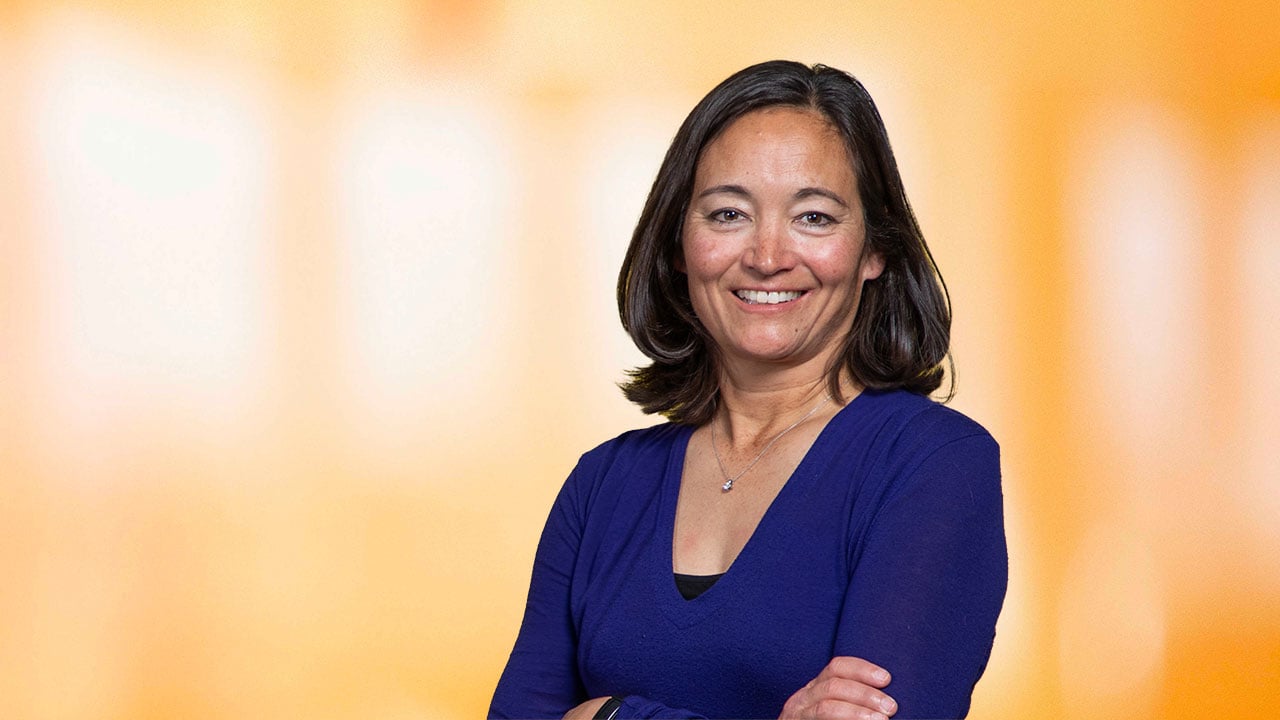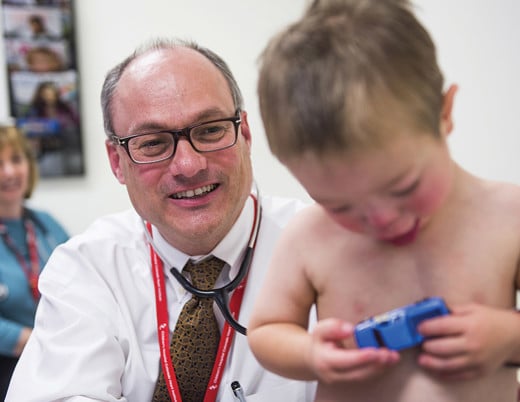An interview with Dr. Miyamoto
Shelley Miyamoto, MD, has been named the Chair of Pediatric Cardiology, Co-Director of the Heart Institute at Children’s Hospital Colorado and Section Head of Cardiology, Department of Pediatrics, University of Colorado School of Medicine.
Dr. Miyamoto has been part of the faculty at the University of Colorado School of Medicine since 2005. She is also the Co-Director of the Pediatric Cardiovascular Research Laboratory and holds the inaugural Jack Cooper Millisor Chair in Pediatric Heart Disease at Children's Colorado. Her basic and translational research within cardiology focuses on the study of various cardiomyopathies and hypoplastic left heart syndrome. The National Institutes of Health continuously funds her lab, in addition to several institutional and foundation awards.
Dr. Miyamoto recently took time to answer some questions about her goals for the Heart Institute.
Q: Research has been a large part of your work. How will research factor into your plans for the Heart Institute going forward? What specific areas of cardiology research are you particularly passionate about and why?
A: Research is an important pillar of the mission of the Heart Institute. Our faculty have expertise spanning from basic science to clinical to outcomes-based research, so we perform investigations of pediatric and congenital heart disease from multiple angles. I am particularly interested in encouraging research that addresses gaps in knowledge for our field. We would like to better understand the causes of pediatric and congenital heart diseases and the mechanisms involved in failing hearts of children and those with congenital heart disease, develop evidence for the treatments we recommend, and identify innovative approaches that allow us to personalize the care of our patients.
Dr. Miyamoto is a member of the American Heart Association, International Society of Heart and Lung Transplantation and Society for Pediatric Research, among other national organizations. She has also presented extensively throughout her career, served on medical and scientific advisory boards, has been awarded several patents and has played a critical role in the Heart Institute's recent acceptance into the Pediatric Heart Network.
Q: Collaboration is an important part of progressing in the medical field. What other partnerships would you like to explore for the Heart Institute?
A: Collaboration is essential in the field of pediatric cardiology and congenital heart disease because, fortunately, these are rare diseases. Therefore, no single center has enough patients to perform investigations to improve care on their own. We have to work together. As a core site for the Pediatric Heart Network, we are now able to have a voice in determining the types of multicenter studies that will be done in the future to improve care and outcomes for children and young adults with heart disease. I would also encourage our faculty to collaborate with investigators outside of pediatrics and outside of cardiology. We can learn a lot from working with bioengineers, geneticists, developmental biologists, computer scientists and bioinformaticists who can help us leverage novel approaches like artificial intelligence and machine learning in our studies.
Q: We know you focused on subjects like dilated cardiomyopathy and congenital heart disease in the past. What other specializations in cardiology do you think are important to see expand?
A: There are a few areas that are rapidly evolving as a result of the improved survival of children born with severe forms of congenital heart disease. For example, there are now more adults living with congenital heart disease than there are children and, as a result, we are very invested in supporting the expansion of our adult congenital heart disease program. There has been increased recognition of the developmental, mental, behavioral and emotional health challenges of our patients. Therefore, we remain focused on supporting the comprehensive wellness of our patients as we want our patients to thrive, not just survive. And finally, we have a responsibility to ensure that patients living in underserved and rural areas within Colorado and surrounding states have equitable access to care. We would hope to accomplish this latter goal through ongoing expansion of our outreach and telehealth services.
Dr. Miyamoto assumes this role from Dunbar Ivy, MD, who served as Co-Director and Section Head of Cardiology for more than 20 years. Dr. Ivy will remain on faculty at the University of Colorado School of Medicine and will continue serving as a mentor, researcher and leader of the Pulmonary Hypertension Program. Dr. Miyamoto will be Co-Director of the Heart Institute at Children’s Hospital Colorado along with James Jaggers, MD, Chief of Congenital Cardiac Surgery. Congratulations, Dr. Miyamoto, we’re excited to see what’s next for the Heart Institute!
“I am honored to have the privilege of building on Dr. Ivy’s legacy and partnering with Dr. Jaggers to lead the Heart Institute,” says Dr. Miyamoto. “We will continue to provide outstanding clinical care, be fully transparent about our outcomes, and through research, innovation and educational initiatives, contribute to transforming the future of pediatric and congenital heart disease.”
Featured researcher

Shelley Miyamoto, MD
Chair of Pediatric Cardiology, Co-Director of the Heart Institute
Children's Hospital Colorado
Section Head of Cardiology, Department of Pediatrics
Pediatric Cardiology
University of Colorado School of Medicine





 720-777-0123
720-777-0123










